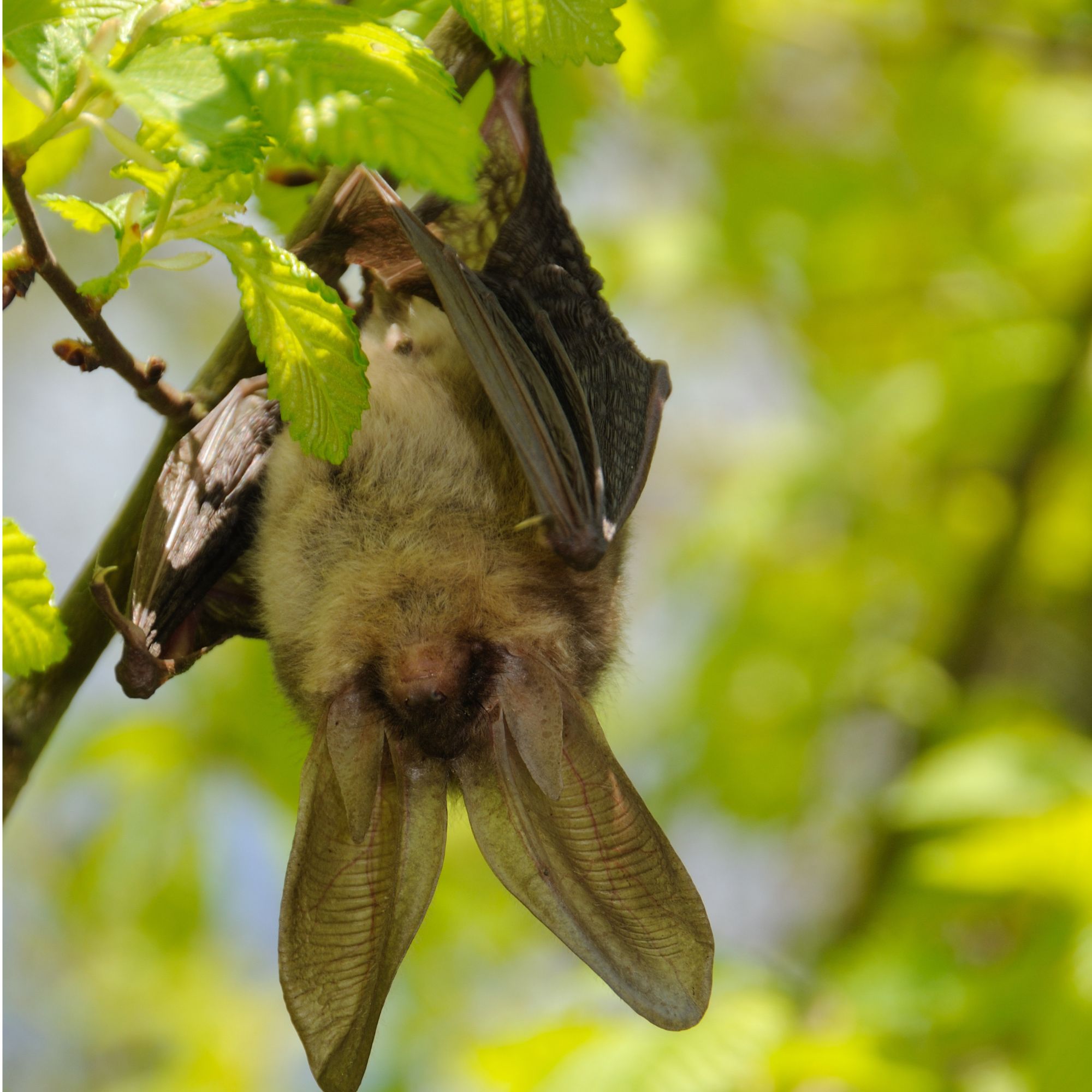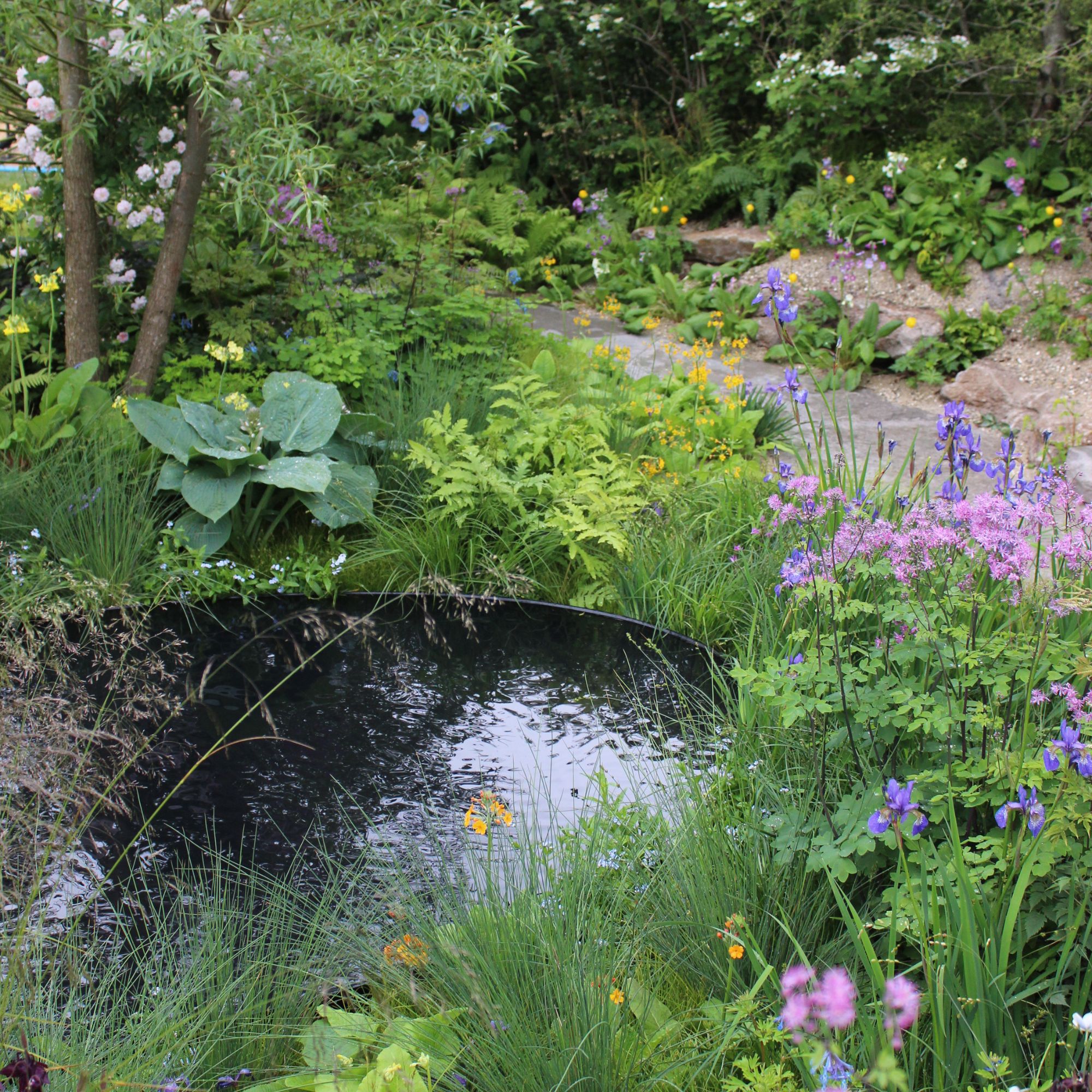
How to attract bats to your garden? With Halloween just around the corner, spooky season is well and truly in progress, and bats become a popular motif, but these nocturnal critters are also a very usual animal to encourage into your garden.
Every homeowner should be doing everything they can to improve their wildlife garden ideas, and bats should be included in this. Not just because their numbers have declined over the last 50 years, but because they are hugely beneficial to our gardens, too.
Natural pest controllers, pollinators and contributors to a healthy ecosystem, here's how to lure more bats into your garden.
'Bats have long been associated with humans, taking advantage of our shared need for shelter and warmth. They probably benefitted right from when cavemen first built fires in caves! They’ve followed us ever since, and now share our modern houses with in-built central heating,' says Sean McMenemy, passionate nature expert and founder of Ark Wildlife.
Noting how important bats are to a healthy garden, he adds that 'even by placing a bat box on the exterior of your house, you’ll be keeping the inside temperature a few degrees warmer than the surrounding countryside and your bats will thank you for your care.'
Bat box aside, though, there are a few other things you can do to keep local bats and nocturnal wildlife happy...
1. Plant night-scented flowers
If you want to learn how to attract bats to your garden, one of the easiest solutions is to plant scented blooms.
'Night-scented flowers release their fragrance at dusk, releasing inviting fragrances that lure in moths and other night-flying insects – prime prey for hungry bats,' says Sean.

'Opting for white or pale blue blossom is particularly wise, as these colours stand out in the dim light, encouraging insects to gather and providing bats with an easy-to-spot buffet.'
Try planting something like trachelospermum jasminoides (better known as star jasmine, available from £23.99 at Crocus), honeysuckle, evening primrose, tobacco plant, petunias, or sweet rocket.
2. Add a splash of water
It's time to dig out your favourite garden pond ideas, as a steady water source is a brilliant way to attract bats to your garden.
'While bats get most of their hydration through their diet, adding a pond or water feature into your garden is an excellent way to lure these nocturnal neighbours and provide them with an extra boost of hydration,' says Sean.

'Not only does it offer bats a refreshing drink, but is also attracts insects, which become a delightful bonus meal for bats,' he continues.
'For best results, make sure the pond is wide enough to give bats an unimpeded runway as they swoop in for a drink. Or, if space is limited, a shallow dish placed in an accessible spot will do the trick.'
3. Create a cosy nook
If you really want to learn how to attract bats to your garden, the easiest solution is to give them somewhere to roost. Remember: bats like to party all night long, so they need somewhere safe to sleep off their hijinks during the daytime.
'Bats adore their homes to be snug and secure, so place the house in a sunny spot on a tree trunk or the side of a building at least 10 ft above the ground,' says Sean.
'This will help them avoid pesky predators, including crafty cats! Although bats aren’t on the menu for cats, they delight in batting them around.'
4. Embrace your wild side

If you're keen to try out the ever-appealing trend for a garden stumpery, then we have good news for you: logs, sticks, and other natural resources are also a brilliant way to attract bats to your garden.
'Adding a touch of natural wilderness to your garden can work wonders,' says Sean. 'Dead trees, hollow logs and lush, dense foliage make for fantastic roosting spots. Embrace a bit of untamed charm – don't rush to remove every piece of dead wood or trim back every branch. These elements create a richer, bat-friendly environment.'
5. Light the way
It might sound counterintuitive, but a well-placed garden solar lighting idea could prove the secret to attracting more bats to your garden.
'If you have a nearby streetlight or have a night lamp on a pole, these act as magnets for both moths and hunting bats and offer you the benefit of being able to see them flutter by, even on moonless nights,' says Sean.
FAQs
Is it good to have bats around your house?
It's good to have bats around your house and garden, as they consume vast amounts of insects, including garden pests such as mosquitoes, moths, beetles, and aphids.
'A single bat can eat thousands of insects in a night, reducing the need for chemical pesticides and helping to maintain a balanced ecosystem,' says Christopher O'Donoghue of Gardens Revived.
He adds that, in the UK, certain bat species like the long-eared bat may assist in pollinating plants – and that the species as a whole contributes to overall biodiversity by controlling insect populations and helping maintain a healthy garden ecosystem.
'Gardens rich in wildlife tend to be more resilient to pests and disease,' he adds.
What are bats attracted to in the garden?
There are many things that bats are attracted to in the garden, but it's safe to say that insects are the biggest draw.
'Bats use echo location for navigation and eat night flying insects as their main diet,' says Sean McMenemy of Ark Wildlife.
'If you’d like to attract more bats in your garden, think flight routes and food. Bats like clear lines of flight, and therefore lines of fences, dense hedges and buildings provide great echo feedback for them to follow,' he says.
'Planting night scented flowers such as honeysuckle, night-scented stock and evening primrose, too, will attract moths which bats love. And, to really up the ante, introduce established trees and shrubs to your garden. These plants offer bugs the perfect spot to lay eggs and reproduce, turning your garden into an insect haven, and an even more inviting place for these beneficial creatures.'
Now that you've learned how to attract bats to your garden, you can set out to trasform your outdoor space into a haven for these nocturnal marvels. Just be sure to remember that all UK bats and their roosts are protected by law, which means it is illegal to harm or disturb them (or open a bat box that's in use).







